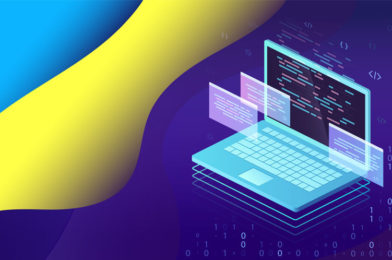The Article is published here http://www.uadn.net/files/ua_hightech.pdf (page 138). Here is it updated according to 2018 law requirements.
The updated analytical report on development of Ukrainian IT industry from 2018 you can find here.
RECOMMENDATION #1: MAKE SURE THAT COPYRIGHT OWNERSHIP IS SPECIFIED IN A CONTRACT WITH THE DEVELOPER
Under Ukrainian law, a programmer may claim 50 % of property rights on a created computer program if not otherwise agreed in the engagement contract. This is provision of Civil Code of Ukraine, Article 430, which states that “Intellectual property rights of an asset created by order belong to the author and customer jointly if otherwise is not provided by the contract”. Thus the contract should include two other important clauses.
• Description of the property rights which are transferred. This is a detailed list of the rights which the exclusive rights owner should obtain. By law, no rights are transferred if there is no description of what exact rights are to be transferred.
• An authorship fee – which is formally a distinct payments for services – should be specified. Alternatively, you may use the formulation of “payments for services”, but specify that the authorship fee is included in this payment for services. It is important that the payment of the fee is actually made.
Without these clauses, the agreement on the transfer of exclusive IP rights can be voided. If you don’t have a direct contract with the author of the computer program, you have to be sure that the outsourcing company has one and that it provides for the rights to be transferred to you as the customer.
RECOMMENDATION #2: DO NOT AUTHORIZE THE EXECUTOR TO CREATE ANY INTELLECTUAL PROPERTY ASSET
To avoid risks, it may be more practical to stipulate in the provisions of the contract that no IP assets are to be created during services provision. The executor is to work on separate tasks, create and improve modules, but does not create the idea or develop the core of the computer program. Those separate working tasks are not the IP assets.
However, it is impossible to avoid creation of IP assets in the case of design works, when logos, icons and other visual object are created while developing a software product. It would also be advisable to conclude separate copyright agreements in case the idea of the computer program, application or other software product arose while working on another of your IT projects. In this case, the idea technically doesn’t belong to customer and conditions of its transfer should be negotiated between the parties.
RECOMMENDATION #3: REGISTER COPYRIGHT ON YOUR IP
In Ukraine, the same as in other European countries, and the USA, the international copyright laws rules apply. Those rules state that IP rights arise once the asset is created and no registration is needed for those rights to exist (Presumption of Authorship).
Nevertheless, when it comes into dispute, the registration document – called the Certificate of Copyright Registration – generally does matter, be it in Ukraine or in other jurisdictions. According to the Berne Convention of 1986, a title of copyright protection locally issued is valid in all convention countries, which includes 168 countries among which the USA and EU countries.
Copyright is treated distinctly from trademark protection, which requires registration in every country separately, whether you apply locally or by means of international application. This means that you may protect your IP rights in any country participating in this convention, but it would be more effective to protect them in the country of IP usage. Here is worth mentioning that in Ukraine IP is being registered as submitted, without substantial examination.
When it comes to a dispute, evidence of priority is to be presented by the parties. It is the opposite in the US, where the Copyright Office conducts examination of software code in order to detect if it contains protected IP of third parties. This makes US copyright protection more valuable for the foundation of evidence in the case of a copyright dispute.
ALTERNATIVES FOR ENHANCED IP RIGHTS PROTECTION
If you feel that the conditions offered by your IT service provider are not fully satisfactory to protect your interests and intellectual property, you may consider the following options.
Direct contract with team members
You may enter into direct, individual contracts with the developers who work on your project, thus establishing a more direct and personal responsibility towards you. In many cases, these developers are registered as individual entrepreneurs and thus legally independent from the Ukrainian company with which they collaborate. This model of work is legal and widespread in Ukraine due to its flexibility and lower taxation.
From a legal and tax perspective, the procedures and consequences for you and for the developers can be the same as in a standard collaboration with a Ukrainian company. The difference is that you will have to manage several contracts instead of one. Using this model, the Ukrainian company running the team should be remunerated through a separate agreement. Thus the financial model of work with the IT service provider will be fully transparent. To protect your commercial secrets, NDAs should be signed with the individuals as well as with the service provider.
Create your subsidiary in Ukraine
If, for strategic or other reasons, you need to fully control your R&D processes and assets produced in Ukraine, setting up your own local subsidiary can be an efficient solution. To set up your own company does not necessarily need to be an expensive legal item. You may be the founder as a foreign physical person or as a non-residential legal entity. The director is the executive body of LLC, often as a hired local for the position being completely dependent on your decisions as the founder.
